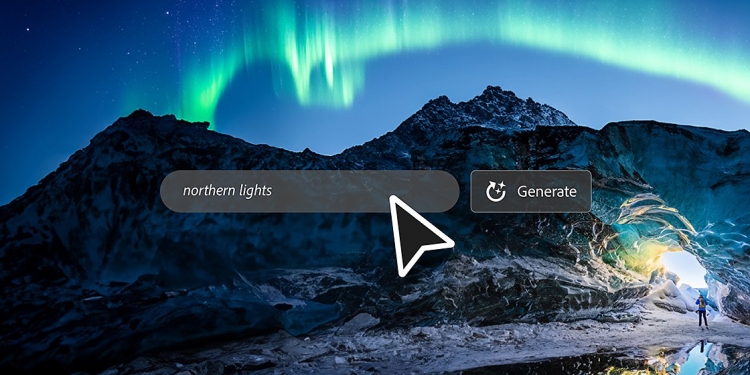The use of artificial intelligence has exploded in the past year, not just with ChatGPT but also with generative image models like Stable Diffusion coming to the fore. Adobe has its own version called Firefly and, having only announced it in March, is wasting no time bringing the feature to its hugely popular Photoshop.
The company is introducing a new feature called Generative Fill, which is essentially a supercharged version of Content Aware Fill, using generative AI to add or remove objects and even expand an image by filling in the blanks, matching the perspective, lighting and style of the original. Users can either type in what they want to see added, or (in the case of expanding the image) simply leave the text field blank and let Firefly do its thing.
In its video demos, Adobe showed off the capabilities of the system, from simple tasks like adding cars and road lines, all the way to more mind-bending stuff like generating bodies of water (complete with realistic reflections) and even changing the entire background. Each generated element is placed on a separate layer so that you can edit non-destructively—like, say, deleting it if you change your mind—without impacting the original image.
It’s certainly impressive, but no doubt there are concerns with copyright infringement when it comes to utilising these generated images for commercial use. Adobe says Firefly is the only AI service that “generates commercially viable, professional quality content,” as it was trained on Adobe Stock images, licensed content and other public domain content without copyright restrictions.
The company has also tried to assuage fears from the creative community, which has been devastated by the use of their art in the training of Stable Diffusion and its derivatives. To that end, Generative Fill supports Content Credentials, a sort of “nutrition label” that informs if a piece of content was created by a human or an AI, enabling proper attribution.
You can already try out Generative Fill for yourself—it’s available in the beta version of Photoshop, ahead of it being shipped in the second half of the year. It’s also been integrated as a module in the Firefly beta web app.








